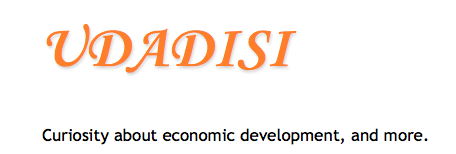Does the disclosure of information about corrupt activities induce a sustai- ned reduction in corruption? We use longitudinal data on audits of municipal governments in Puerto Rico to answer this question. We find that corruption is lower in municipalities audited before an election. However, these municipalities do not exhibit decreased levels of corruption in subsequent audits. Mayors in municipalities audited preceding the previous election have higher re-election rates, suggesting that audits enable voters to select more competent politicians. We present a political agency model that rationalizes the observed short-term and dynamic effects of information on corruption and re-election rates. We con- clude that audit programs must be timely, sustained, and long-term commitments in order to be effective.
That is from the paper "The Dynamic Effects of Information on Political Corruption: Theory and Evidence from Puerto Rico" by Bobonis, Cámara Fuertes & Schwabe (December 2012).
The authors explain:
Our paper contributes to the ongoing debate regarding the nature of the differences among politicians, and the type of qualities that voters evaluate in their representatives (see, for instance, Fearon 1999 and Besley 2005). One view is that some politicians are virtuous or honest and will do all they can to serve voters, while others are opportunistic and seek office primarily to extract rents from office. Another, possibly complementary, view holds that all politicians are opportunistic but differ in their ability or competence. The two positions have different implications for public policy as well as for our understanding of democracy. If we believe that some politicians are virtuous, we must also believe that policies that enable voters to evaluate politicians’ character can be just as effective as those which help voters evaluate their policies and rent-seeking activities. Furthermore, in this case, helping voters better select their politicians will have long-lasting effects on the quality of government as virtuous politicians will continue to govern well even when they have no signaling motive. On the other hand, if politicians differ mostly in their competence, the most effective policies are those that provide information to voters about incumbents’ actions in office, and the effects of these policies will be short-lived as opportunistic politicians take advantage of situations in which voters have less information. Our results provide strong, if context-specific, evidence for the second view.
The authors conclude:
The difference in the effect of pre- and post-election audits we document underscores the importance of disseminating audit results at the time when they are most relevant for voters – shortly before an election. Furthermore, the null dynamic effect of audits on the level of corruption leads us to conclude that audit programs must be timely, sustained, and long-term commitments in order to be effective.HT: Eugene Beaulieu.

No comments:
Post a Comment